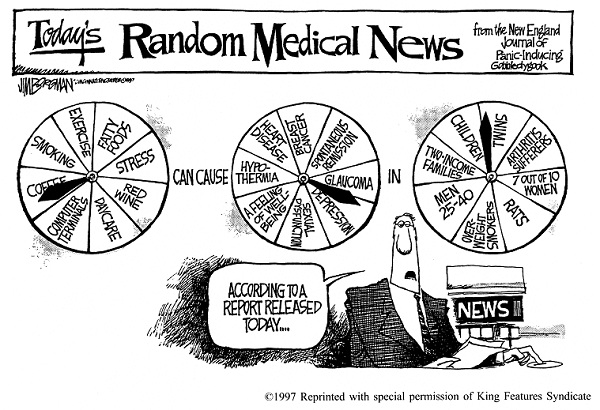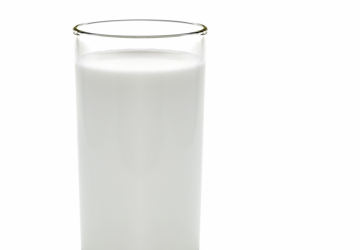The idea that foods are “addictive” has been floating around for about a decade. When it was first broached, a psychiatrist cautioned in USA Today that “the word ‘addiction’ is perilously close to losing any meaning.”
Unfortunately, her warning wasn’t heeded. MSNBC.com reports today that you “maybe” can get addicted to ice cream. Researchers found that adolescents who drank more milkshakes over a week showed less evidence of pleasant brain chemicals after drinking one than those who drank fewer milkshakes over a week. (All the subjects were healthy weight, so apparently none of the kids experienced “addiction” to ice cream, candy, or anything else yummy before they got in the brain scanner.)
Of course, that didn’t stop Kelly Brownell protégé Ashley Gearhardt from proclaiming that these “changes in the brain” amount to “food addiction.” That conclusion even went too far for the researcher who conducted the study, who stated, “I personally do not say food is addictive.” After all, nobody’s mugging people for cash to get a “fix” down at the Dairy Queen or getting the shakes from taking a day off of the stuff.
Just like the absurd “toxic sugar” rhetoric of Robert Lustig, this “food addiction” claim is all about making consumers feel like they aren’t responsible for their actions (and holding somebody else responsible). As a professor at the Albert Einstein College of Medicine in New York wrote in USA Today: “Part of any empowerment process means owning up to what’s really happening and accepting some responsibility for what we do.” The only people who clearly benefit from the “addiction” claim are trial lawyers who have been trying to sue food companies for as long as the idea has been around.
And if we start down the “food addiction” path, where does it end? A Wall Street Journal op-ed writer gives us a harrowing (and tongue-in-cheek) vision:
If your daughter hosts a slumber party, you’ll need to sleep with one ear open. If you hear giggling from the kitchen at 2 a.m., be ready to sit up in bed and holler, “You girls better not be baking cookies down there!”
The fact is food may cause a feeling of well-being, but comparisons to alcohol or cigarettes are ludicrous.





